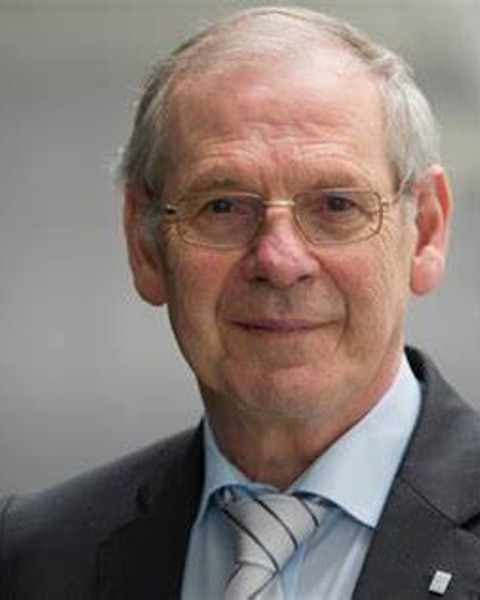
Gunther Deuschl, MD (he/him/his)
Professor of Neurology
Universitaetsklinikum Schleswig-Holstein, Campus Kiel
Prof. Günther Deuschl studied mathematics, geography, history and philosophy from 1969 to 1974 before beginning his medical studies at the Ludwig-Maximilians-University in Munich (LMU), which he completed in 1980 with a license to practice medicine and a doctorate (summa cum laude). He was a scholarship holder of the Studienstiftung des Deutschen Volkes. He received his training in experimental neurophysiology at the Institute for Neurophysiology of the LMU and his training as a neurologist at the clinics for neurology of the Klinikum Rechts der Isar in Munich and the University of Freiburg, which he completed in 1988 with a specialist in neurology. In 1986, he was named head of the laboratory for clinical neurophysiology in Freiburg and in 1994 he was appointed associate professor for neurology and clinical neurophysiology. In 1991, he was at the National Institutes of Health in Bethesda, Maryland, USA, studying tremor patterns and electroencephalographic equivalents of the will. In 1995, he was appointed professor and director of the Department of Neurology at the Christian-Albrechts-University in Kiel. There he and his team established a focus on the treatment of patients with movement disorders and Parkinson's. The first patients were treated with deep brain stimulation in 1998. From 2004 to 2011, he was editor of the international journal Movement Disorders .
From 1993 to 1997 he was a board member of the German Society for Clinical Neurophysiology and from 1994 to 1998 of the International Federation of Societies for Clinical Neurophysiology. In 2006 he became President of the German Society for Neurology. From 2011 to 2013 he was President of the International Movement Disorder Society, the international society of Parkinson's specialists. From 2014 to 2018 he was founding president of the European Academy of Neurology, the society of all neurologists in Europe. In 2015, he was awarded an honorary doctorate by the Academy of Sciences for his contribution to the development of neurology in Moldova. In 2016, he retired as Director of the Department of Neurology at the University of Kiel. In 2018 he was appointed the first senior professor at CAU Kiel.
Deuschl has been concerned with human movement disorders since the beginning of his career. As head of an international consortium, he developed the first classification of human tremor forms in 1998, and its first revision in 2018. Another focus was deep brain stimulation as a treatment method for movement disorders. He led the world's first controlled study of treating Parkinson's disease with deep brain stimulation, which has demonstrated better efficacy than drug treatment for quality of life and mobility in eligible Parkinson's patients. He designed and led the EARLYSTIM study, which showed that fluctuating Parkinson's patients benefited better from deep brain stimulation than from drug treatment, even shortly after the onset of motor complications. He has been instrumental in numerous research groups working to understand transient global amnesia, a reversible memory disorder, the treatment of dystonia and the redefinition of Parkinson's disease.
Poster(s):
-
Friday, April 21, 2023
